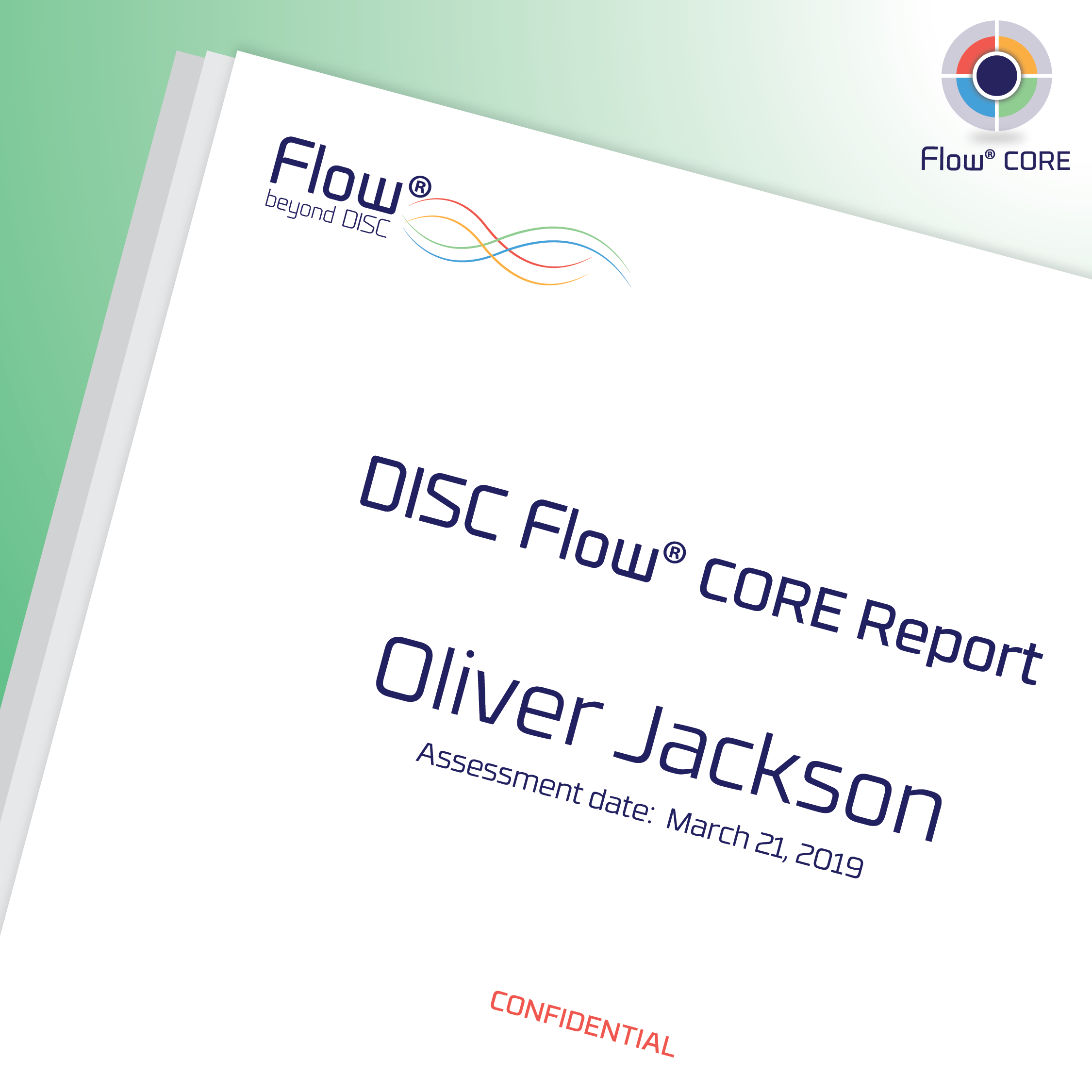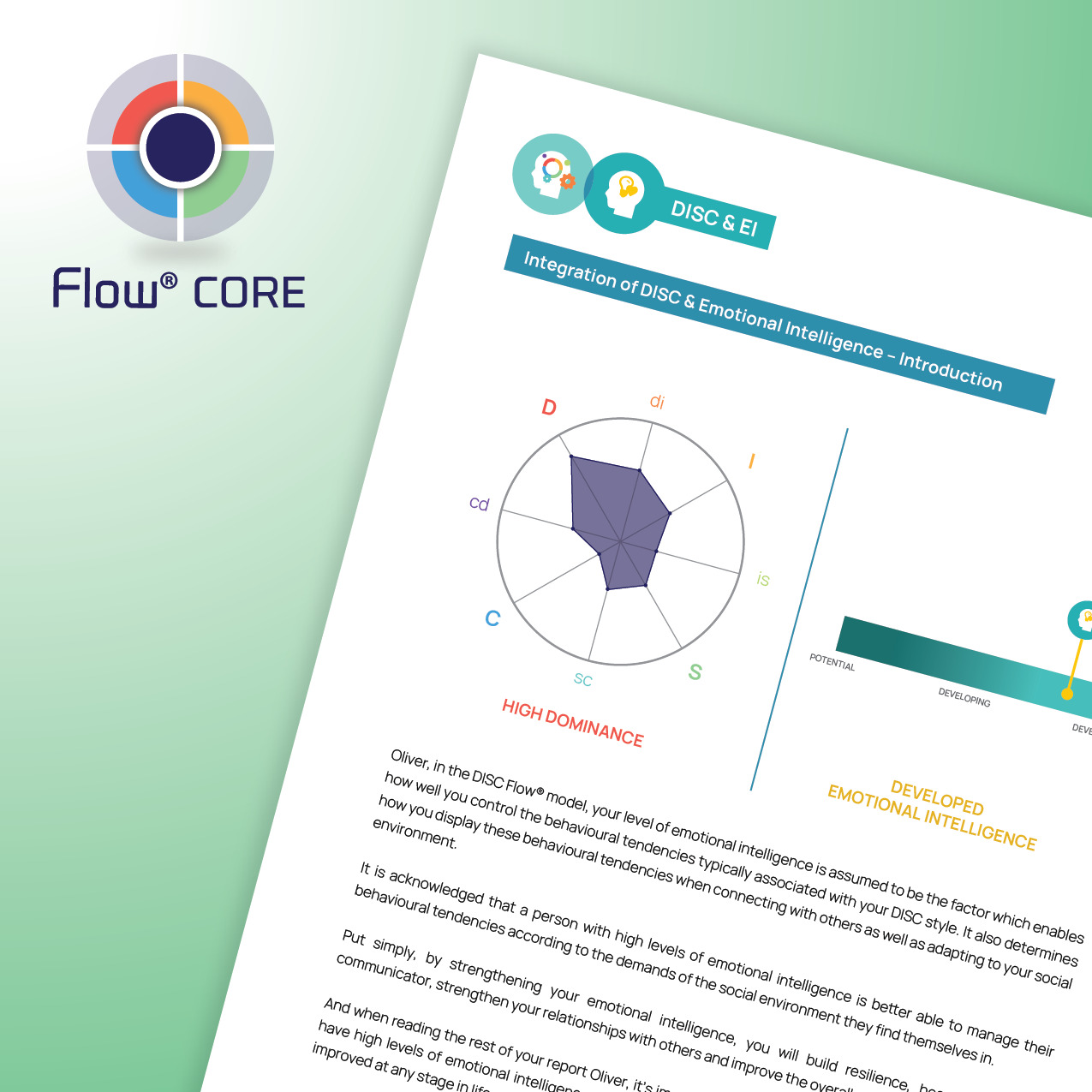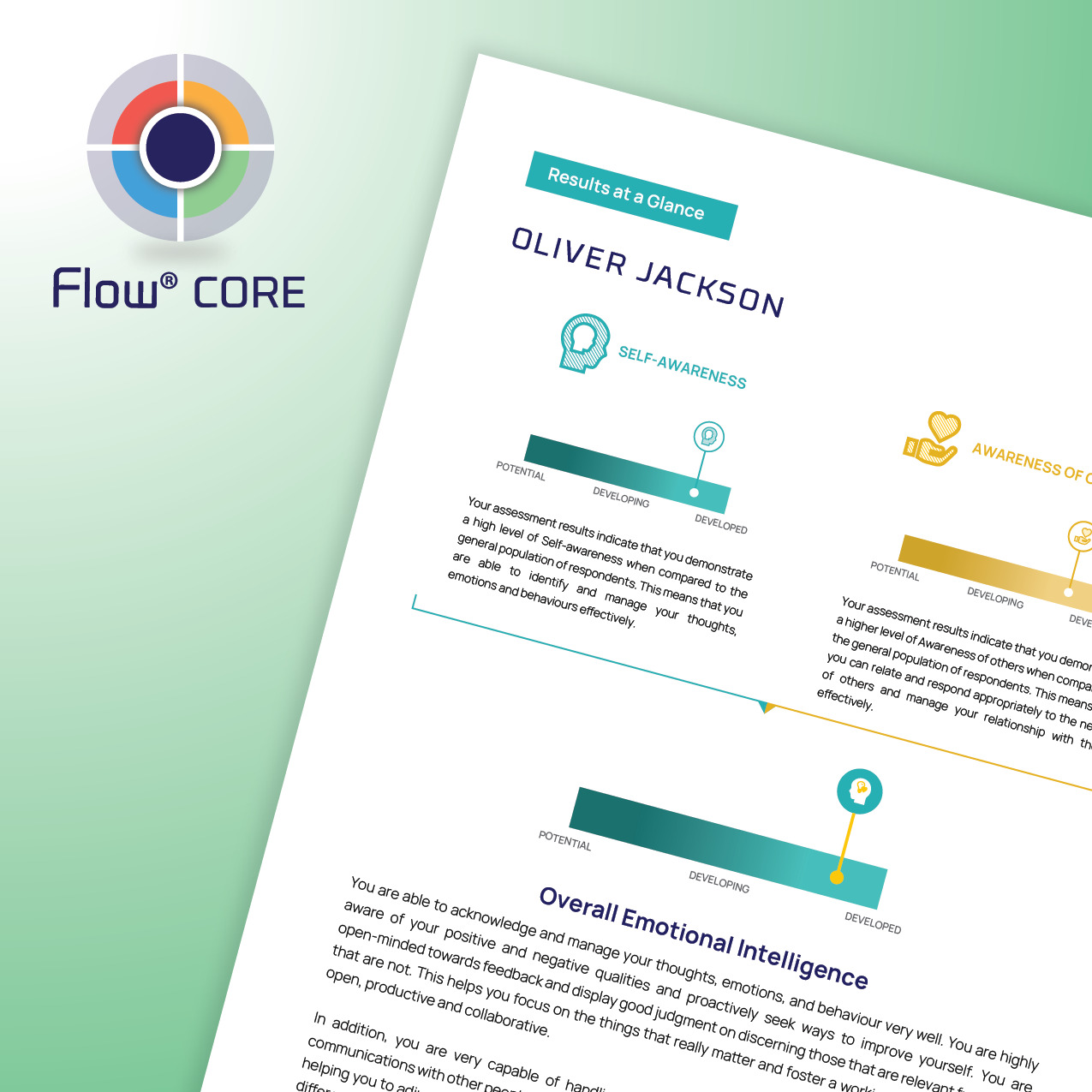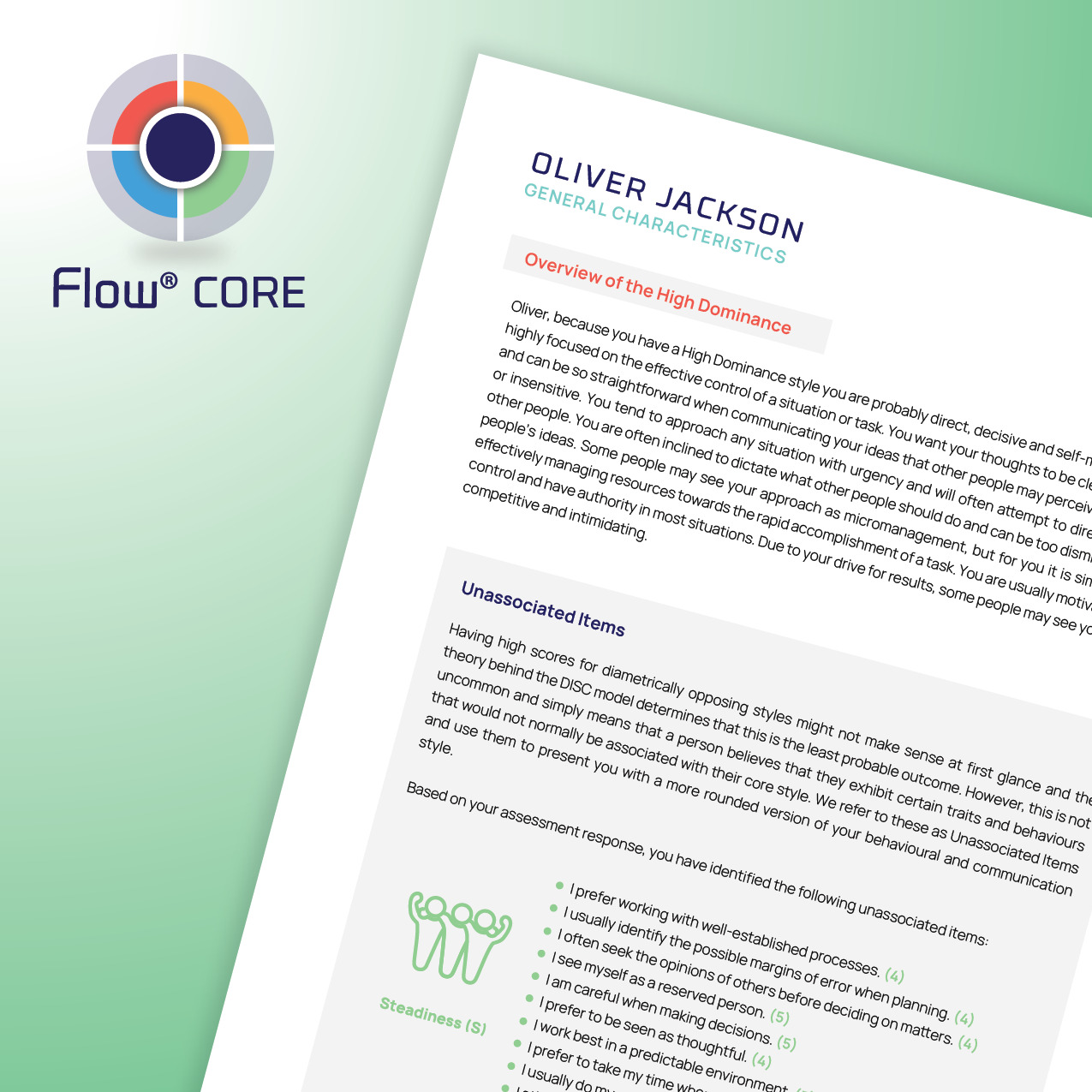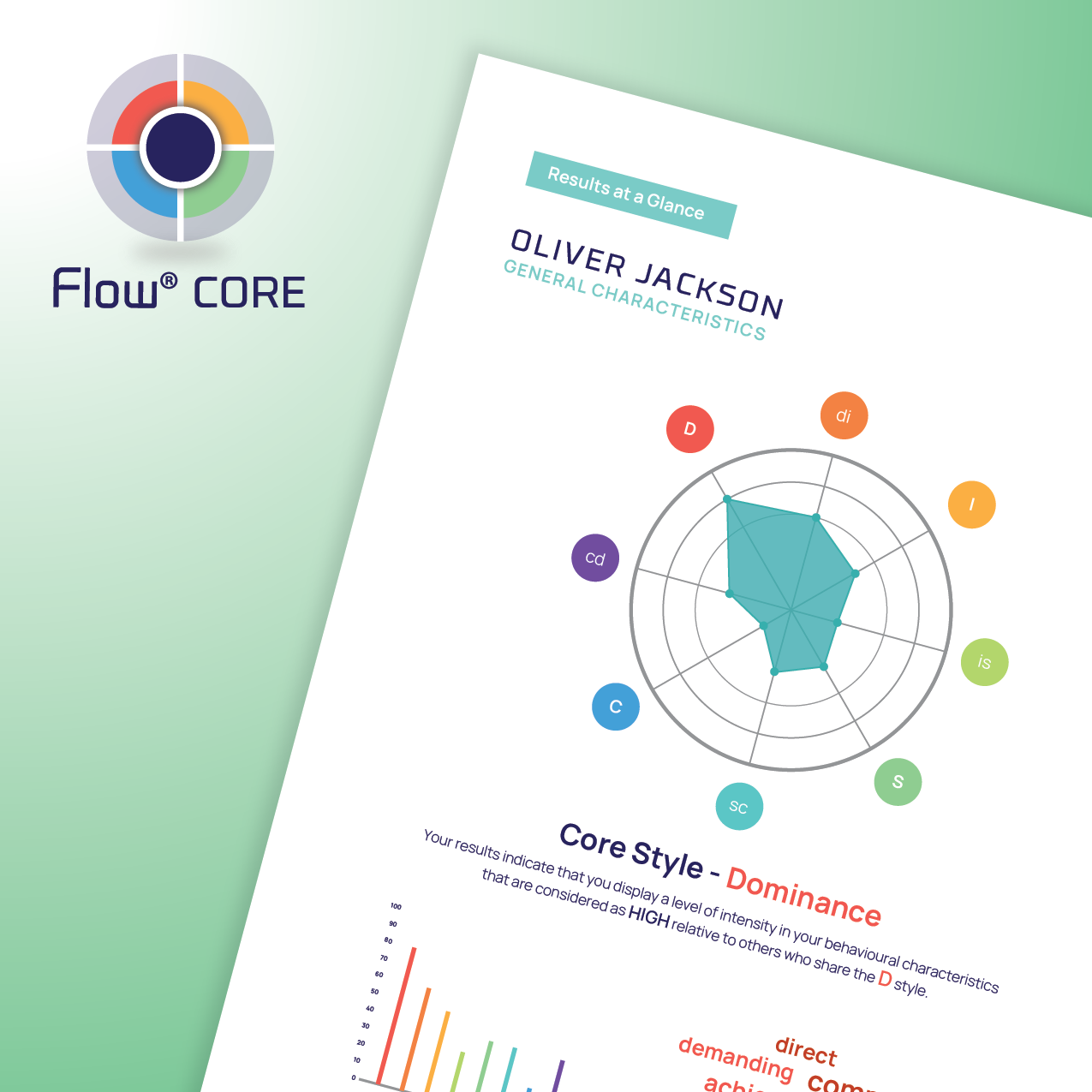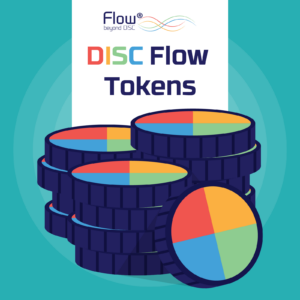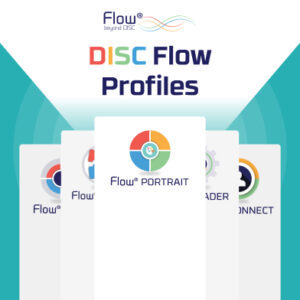DISC Flow®
CORE Report
DISC Flow® Core is a highly accurate tool that identifies an individual’s preferred behavioural style and communication preferences. It also provides a blueprint to help people understand and appreciate what motivates others. This personalised report provides a wealth of information and insights to help you develop your potential. One that exploits your strengths shows you where to focus your energy and take advantage of areas where you are more engaged and effective.
Tap into your strengths and build better, stronger and more productive relationships.
The personalised DISC Flow® CORE report uses your assessment data to provide a wealth of information and insights that will help you develop your potential.
DISC Flow® CORE Report Features
The Personality Types Explained
The DISC assessment identifies four key personality types: Dominance, Influence, Steadiness, and Compliance.
DOMINANCE
Results-driven, direct, and sometimes competitive, people with the Dominant personality style enjoy a challenge. D style individuals can be blunt, assertive, and straightforward but they are good at considering the big picture and focusing under pressure.

INFLUENCE
People with the Influence DISC personality are people-oriented, outgoing, and enthusiastic. They enjoy collaboration and inspiring others with their optimism and communication. However, people with Influence traits often ignore the details and avoid difficult conversations.

STEADINESS
The Steadiness personality is linked to thorough, predictable, and stable. Individuals with the Steadiness personality traits tend to be easy-going and enjoy a calm and settled work environment. Sometimes, they struggle with assertiveness and open-mindedness.

COMPLIANCE
Individuals who have personality type C are detail-oriented, accurate, and meticulous in their work. Compliance types are often practical and creative but can sometimes appear passive or disinterested to others.

EMOTIONAL INTELLIGENCE
Emotional intelligence refers to an individual’s ability to perceive, understand, and control their emotions. It helps us empathise with others, communicate effectively, manage conflict, and deal with our own problems.

Start using DISC Flow® Today
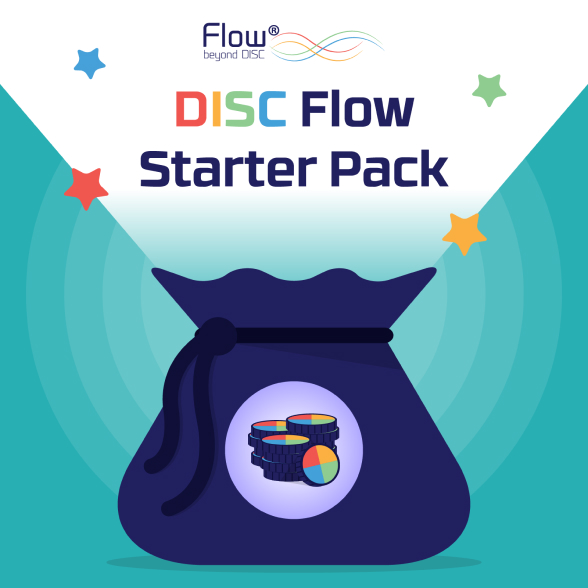
Bring DISC Flow® to your organisation now and let the workplace transformation begin. If you’re looking to purchase more than 10 reports for your organisation, we recommend purchasing our Starter Pack! For ongoing requirements, we recommend contacting us so we can advise you on the best solution. DISC Flow® is dedicated to helping organisations solve their people problems!

